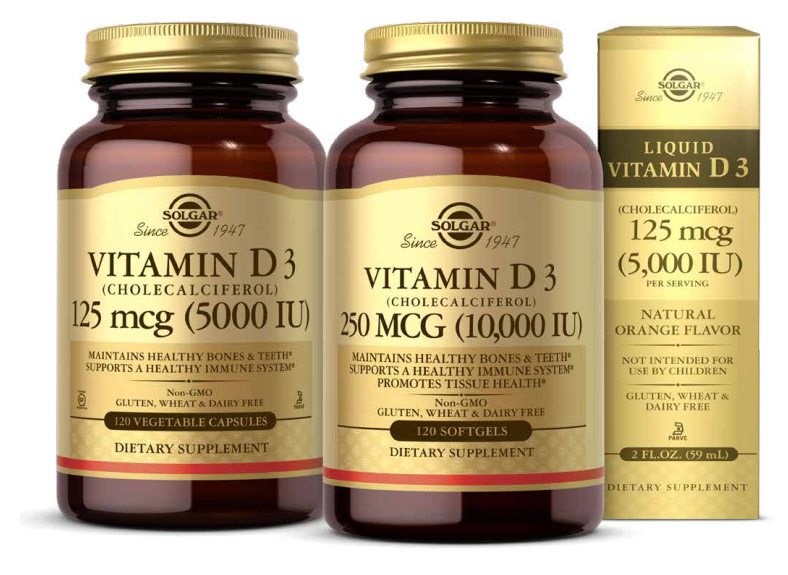
What Is Vitamin D?
Vitamin D (also called “calciferol”) is a fat-soluble vitamin naturally present in a few foods, including fatty fish, fish liver oils, and egg yolk. It’s also available through sun exposure, enriched foods such as milk, and dietary supplements. Vitamin D2 is naturally present in plants, mushrooms, and yeast via photosynthesis. Vitamin D3 is formed in the skin when you’re exposed to sunlight. 10-20 minutes of direct sunlight may be sufficient, but it depends on the season, sun intensity, and skin pigmentation.
Why Do You Need Vitamin D?
Vitamin D2 and D3 support physical and mental health in various ways, including:
- Regulating the levels of calcium and phosphate in the body
- Promoting calcium absorption for bone, teeth, and neuromuscular health
- Maintaining a healthy immune system
- Minimizing the risk of heart disease, multiple sclerosis, and diabetes
- Improving sleep quality
- Preventing depression by increasing serotonin levels and regulating mood
- Promoting weight loss

While the National Institute of Health, Office of Dietary Supplements, recommends an intake of 15-20 mcg for bone health, studies found that 25–100 micrograms (1,000-4000 IU) are needed to optimize overall health. Too little can cause medical conditions such as osteomalacia and osteoporosis in adults. Symptoms include bone pain, weak bone, and weak muscle. More than the upper limit of 4000 IU may lead to vitamin D toxicity and health problems such as hypercalcemia.
Factors Affecting Adequate Vitamin D
It’s difficult to get the daily recommended amount of vitamin D from food or sunshine alone or a combination of both. Factors affecting the level of vitamin D from sunshine include old age, location, sun intensity, clothing, and skin pigmentation. Wearing sunscreen also blocks vitamin production in the skin.
Some foods rich in vitamin D, such as fish liver oil, are not necessarily delicious and enriched foods do not usually have adequate amounts. Prolonged exposure to the sun is linked to skin irritation, skin damage, and skin cancer. Due to skin pigmentation in dark-skinned people, less vitamin D is formed through skin exposure. The risk of vitamin D3 deficiency is also higher.
Supplementing Your Diet with Vitamin D
Vitamin D deficiency is common among the general American population. Supplementing with vitamin D is a practical way to prevent deficiency, improve health, and avoid the risks of excess sun exposure. Taking a supplement also allows you to get the recommended amount of vitamin D2 and D3 daily. Supplements are available as liquids, tablets, capsules, and extracts.
Consider speaking with your doctor before taking vitamin D supplements as they may interact with medicines or other dietary supplements you’re taking.

